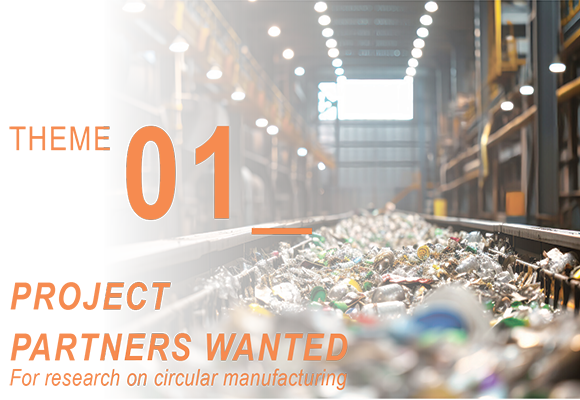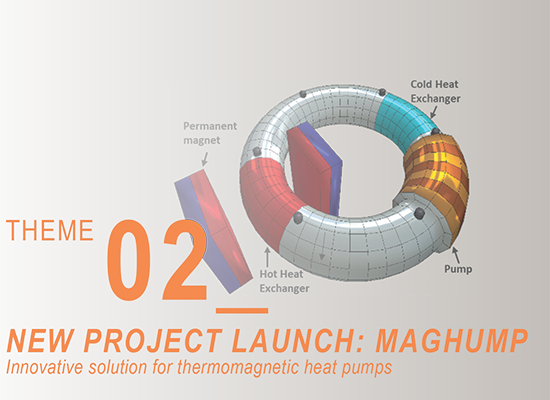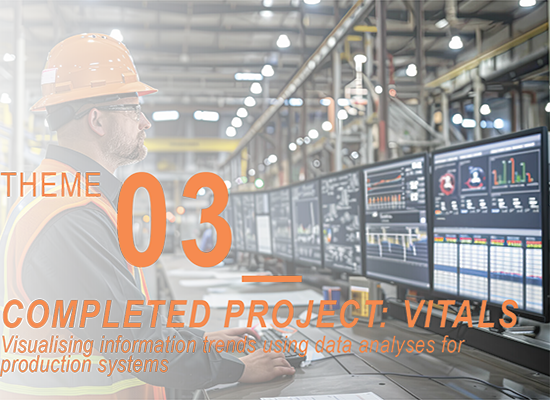ADVANCED MANUFACTURING PROGRAM
Powered by: Regio Deal Twente
The Fraunhofer Innovation Platform for Advanced Manufacturing (FIP-AM), together with the regional government and partners, has developed the Advanced Manufacturing Program (AMP) to create a transition framework to Manufacturing 4.0 and to strengthen the industry in the east of the Netherlands.
The Advanced Manufacturing Program (AMP) provides subsidies through the RegioDeal, supported by the Province of Overijssel and the Dutch State. The aim is to stimulate the rapid development of Twente and other regions in The Netherlands by creating an Advanced Manufacturing hub with an outward-looking, European image.
In this way, the AMP strengthens the reputation and climate of the region. Within the AMP, the Fraunhofer Innovation Platform is developing innovation projects in the field of production technology together with the University of Twente.
The Advanced Manufacturing Program (AMP) is a grant program that helps us businesses support your transformation to Industry 4.0. This is made possible by the RegioDeal, supported by the Province of Overijssel and the Dutch State.
Most manufacturing processes produce waste materials, presenting significant opportunities for achieving circularity in manufacturing. Transforming waste is crucial for fostering a resilient and ecoconscious manufacturing landscape.
One promising area is high-value scrap recycling, where valuable materials like inconel and titanium can be recovered from process waste. This consequently reduces supply chain dependency and maximizes raw material use.

Another important topic that is often neglected is remanufacturing, which involves refurbishing used or damaged components to like-new condition. This process extends product life, reduces the need for new raw materials, and enhances sustainability.
Additionally, it is critical that manufacturers seriously consider design for circularity. A key step in product design is to consider the entire lifecycle of the product. By implementing ecodesign principles early in the process, a product can be more easily reengineered for sustainability. This includes exploring innovative and sustainable materials, using energy and material efficient processes, designing for repairability, and ensuring products are also easy to disassemble and recycle.
Interested in exploring circularity in your production? Engage with us to transform your manufacturing processes.

A new energy efficient and environmentally friendly solution is under develpment. Magentic heat pump technology is able to heat and cool spaces where precise temperature control is required. Currently, the permanent magnet assembly component makes the technology costly and prevents widespread adaptation.
The project MAGHUMP explores the use of liquid metal as heat transfer fluid. This innovative solution is expected to decrease residence time by a factor of 5 to 10.
By manufacturing regenerators with optimized geometry using powder sintering process, the liquid metal can be tested for its thermo-magnetic performance. This is expected to reduce the manufacturing costs by 20-30% as well as minimise energy loss related to heating and cooling processes.
Interested in exploring circularity in your production? Engage with us to transform your manufacturing processes.
Unplanned maintenance activities can lead to significant costs and production delays. The VITALS project integrated sensor technology to collect real-time production data, systematically storing it in a comprehensive repository for advanced analytics.
A machine learning algorithm was developed to differentiate between healthy and failure modes of critical components, essential for monitoring component health and anticipating potential failures. The project demonstrated the potential of using advanced analytics for monitoring industrial processes, enhancing predictive maintenance capabilities, and extending these methods to other engineering systems.

A new AMII project is investigating the benefits, application and implications of using additive manufacturing in production environments. Another project, Trendy, focuses on sales forecasting for products without historical data, such as rapidly changing fashion items.
Interested in using data analytics to improve your production? Do not hesitate to reach out!
More information about our projects?
Please contact us.


